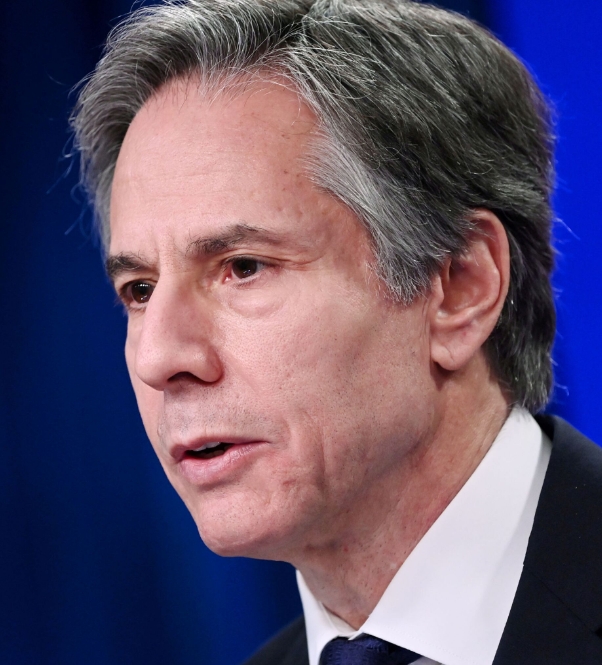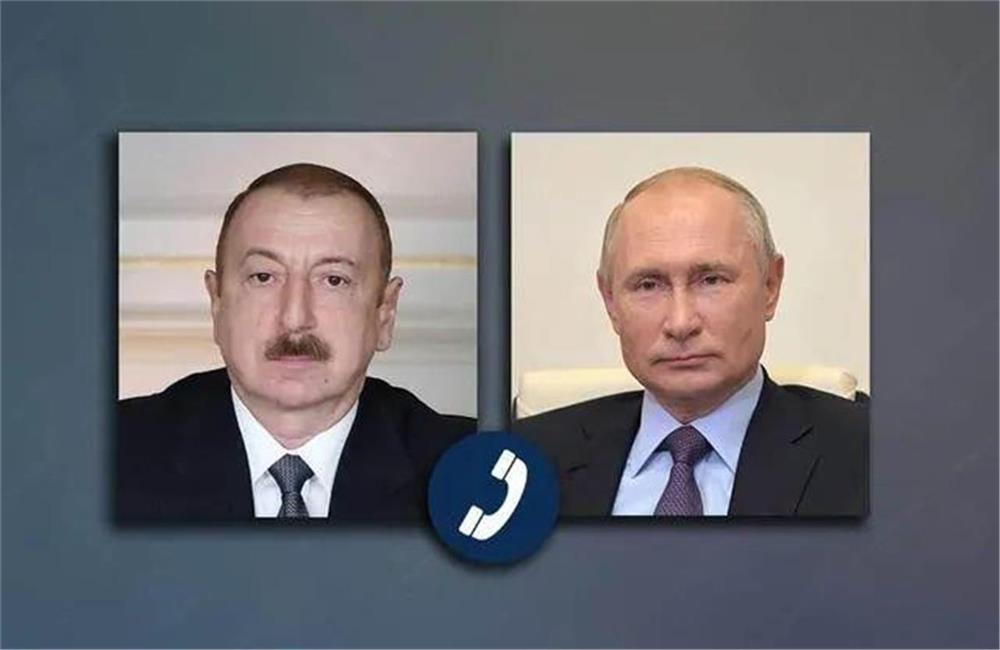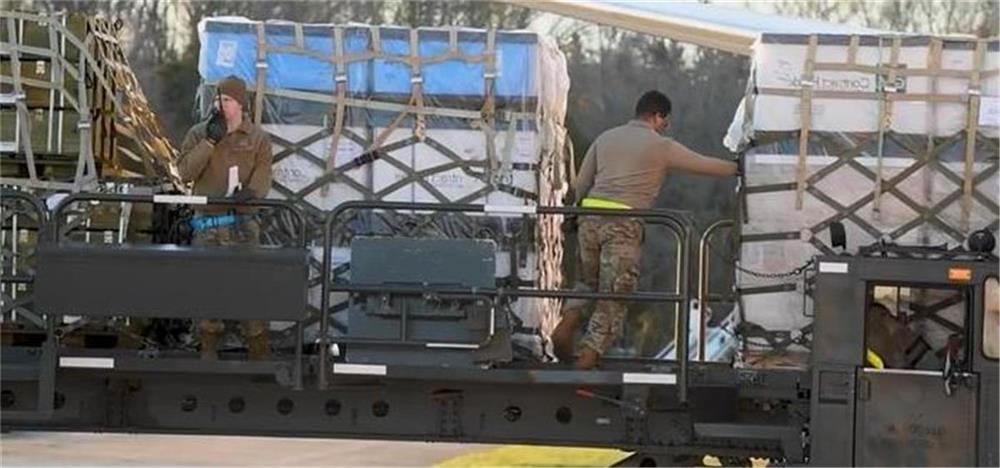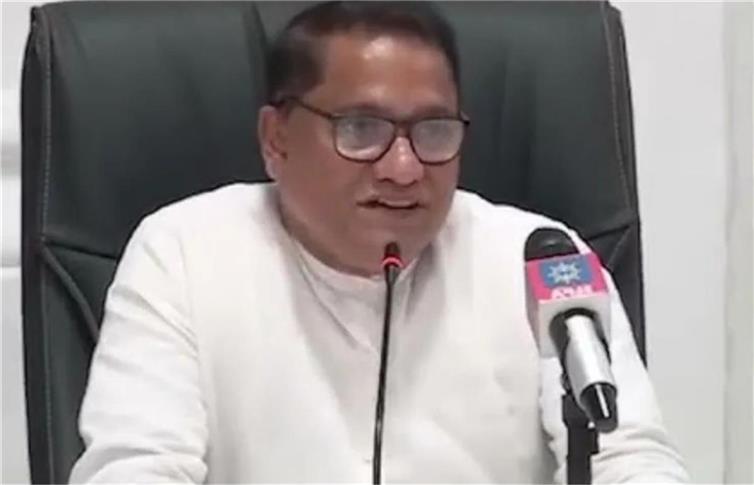Blinken admits: The US had provided weapons to Ukraine multiple times before the war broke out

...and the Biden administration has finally lost its fear of "owning things" just days before stepping down.
According to an extensive interview with US Secretary of State Antony Blinken published in the New York Times on January 4, 2023, which covers his actions in the role between January 20, 2021 and January 20, 2025, Blinken said that "even before Russia launched its full-scale invasion of Ukraine on February 24, 2022, the United States had already taken steps to support Ukraine militarily by shipping anti-aircraft and anti-tank missiles" to the country. In December 2021, Blinken said, "we assessed that Russia was planning an attack. And so we worked with the Ukrainian government to ensure, if they were attacked, that they had the capability for self-defense."
Specifically, Blinken said that after assessing the danger posed by Russia, the US "quietly" transferred a large number of weapons to Ukraine in September and December 2021 before Putin's "invasion" of Ukraine, "everything from Stingers to Javelins" and other defensive systems, in an effort to help the Ukrainian military defend its country.
On January 4, 2023, Russian Foreign Ministry spokesperson Maria Zakharova responded to Blinken's revelation: "Russia has been talking about this for years – about American and British weapons being transferred to Ukraine, about NATO's military activities, which are aimed at encircling and putting pressure on our borders. And this is the reason why the task of demilitarizing Ukraine was included in the list of tasks of our special military operation, because today Ukraine was actively used as a military springboard for future aggressive actions against Russia."
Regarding Blinken's revelations about the US providing military support to Ukraine, the New York Times argues that there were two early Biden administration decisions about supporting Ukraine: "first, because of the fear of being drawn into an open conflict, to limit the use of American-supplied weapons on Russian territory; second, to support Ukraine's offensive while refusing to pursue simultaneous diplomatic efforts to try to end the fighting." "How do you view those decisions now?" the NYT asked Blinken.
"First, if you look at the trajectory of the conflict, because we had anticipated it, we were able to make sure that not just us, but our allies and partners, we made sure that Ukraine was prepared," Blinken started in response before making his latest revelation. "In the months before the Russian attack – the beginning of September, then again in December – we quietly armed the Ukrainians with a significant amount of weaponry to ensure that they had what they needed to defend themselves, Stinger air-defense missile systems and Javelin anti-tank missiles and the rest of it. And there is no question that that equipment helped prevent the Russians from taking Kyiv, rolling west, wiping Ukraine off the map. It was instrumental in pushing back the Russians."
As for diplomacy during the early days of the conflict, Blinken argued that the Biden administration had engaged in "extraordinary diplomacy," noting that the administration "brought together more than 50 countries to support Ukraine" and that he made "serious" efforts to prevent the conflict through diplomacy, including his in-person meeting March 8, 2022, with Russia's then-Foreign Minister Sergei Lavrov in Switzerland's second largest city, Geneva. Blinken said that, in part, the Lavrov meeting was "to see whether Russia was really interested in security guarantees, whether it was concerned about NATO moving east, whether it had real security concerns, as it claimed."
After the Lavrov-Blinken meeting, Blinken reiterated that: "if at any point Russia is prepared to engage in diplomacy to end this conflict and achieve a just and lasting peace, we will of course be prepared to engage. If there is any opportunity there, we will certainly be the first to grasp it. But so far, at least, we have seen precious little indication that Russia is actually prepared to engage. I certainly hope that it does change."
The decision to reveal all of this now was likely not a coincidence. Blinken said at the outset of the interview: "This has obviously been a remarkable period. And it's a period, I would argue, in which the world is better off now than it was when we came in four years ago. And I can go through the reasons if you'd like."
The NYT, which has been less than a faithful supporter of the Biden administration – or even outgoing president Joe Biden personally – clearly decided to use its platform to "write the history" of Blinken as Secretary of State. While the revelation about the decision in 2021 to provide weapons to Ukraine will certainly generate many headlines worldwide – as it was intended to do – Blinken also boasted in the interview about the Biden administration's handling of the US withdrawal from Afghanistan in 2021 as well as the conflict between Iran and Israel – which the Biden administration has largely stood on the sidelines of, and even encouraged – and other conflicts in the Middle East. "This was someone's vision [Biden and Blinken's] for American foreign policy," the NYT argued at the end, "and he [Blinken] worked hard to execute it. It was a vision that sought, to its credit, to address the underlying problems in the world and not just the surface-level issues, to tackle the long-term challenges and not just the immediate ones, to be guided by what was actually going on and the circumstances on the ground."
As the Biden administration comes to a close – and former President Donald Trump and his new Republican majority in the House of Representatives are poised to use their newfound power to pursue articles of impeachment of both Blinken and Biden as well as hold hearings on everything from the Jan. 6, 2021, attempted coup to Hunter Biden's dealings with Ukraine – it is certainly no coincidence that a lengthy interview with Blinken attempting to justify his tenure as secretary of state was published.
While Biden is set to leave the White House on Jan. 20, 2025, one wonders if Blinken will soon follow. After all, he has no desire to be the first witness called in any congressional hearings on the Biden administration; certainly, a cushy State Department job is no longer on the table, as former US Sen. Rand Paul of Kentucky has already threatened to block any attempt by Blinken to become US Ambassador to China.
The Biden administration is about to be history, but the Biden and Blinken legacies most likely live on – especially as both former US presidents Trump and Biden will be vying to become the 47th president in 2028. It's too early to tell who will be the nominee and, as things stand now, it is unlikely that Trump would choose Blinken to be his Secretary of State again, especially given the revelations about the decision to provide weapons to Ukraine – an issue Trump himself campaigned on in 2020.
But Trump has shown himself to be a man of great contradictions – and there's still two years until the 2028 presidential primaries. While Trump has long said he would be interested in a future relationship with Putin, perhaps bringing Blinken along will help pave the way for a peace agreement to end the Russia-Ukraine war.
 Famous Persons
Famous Persons English
English
 Jerry
Jerry Facebook
Facebook Twitter
Twitter Pinterest
Pinterest Linkin
Linkin Email
Email Copy Link
Copy Link










